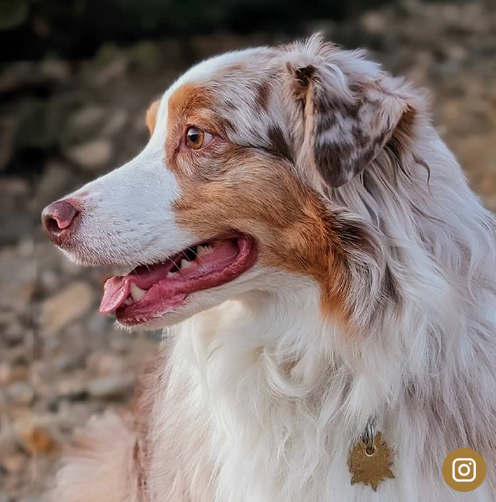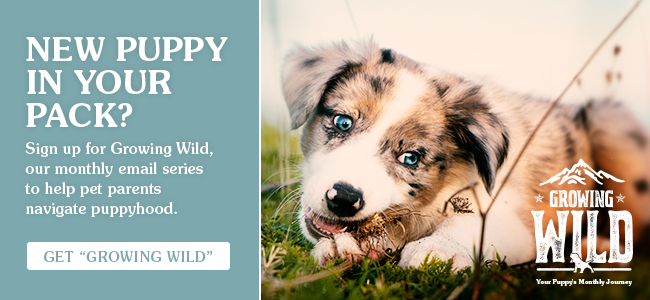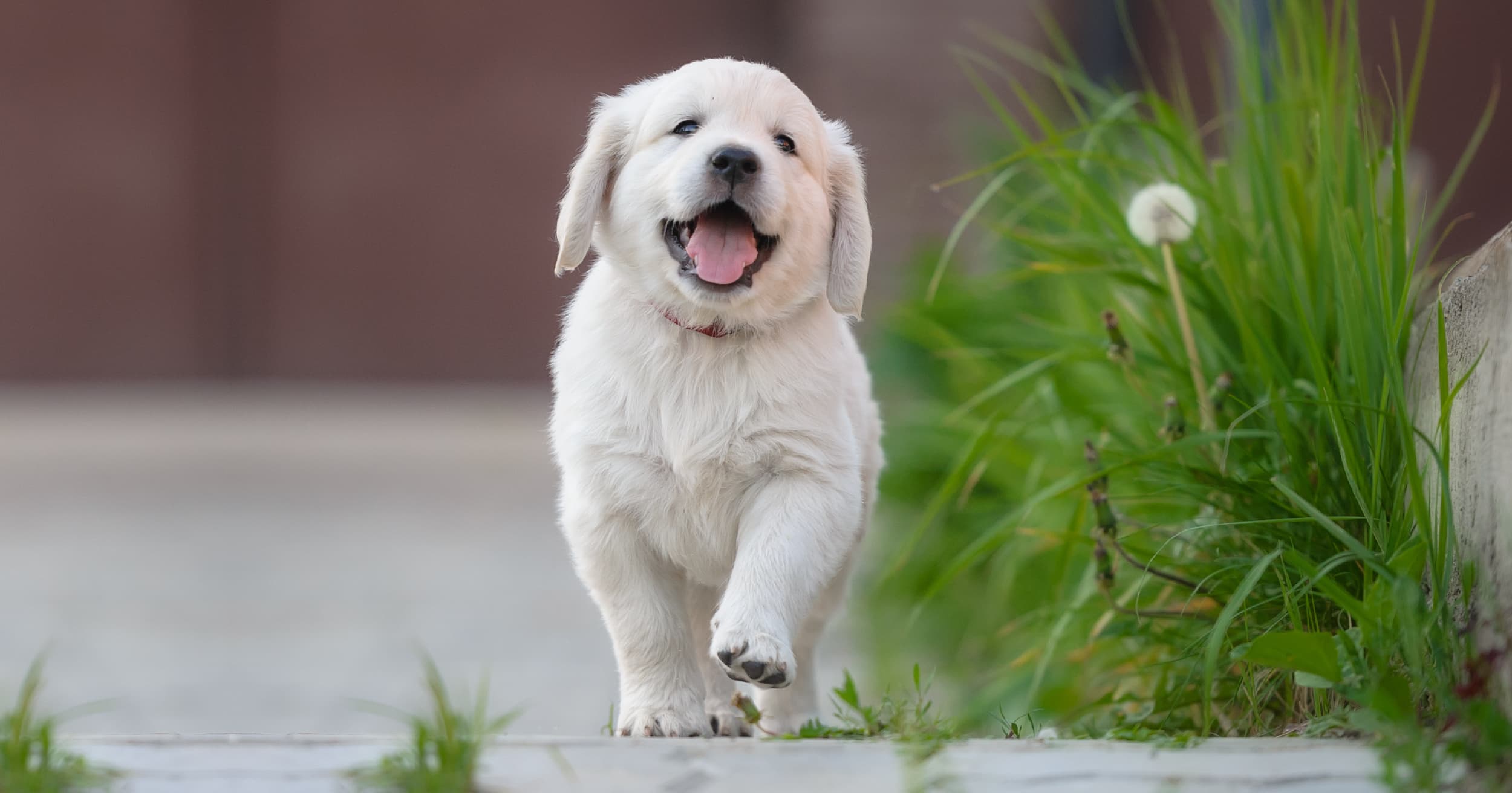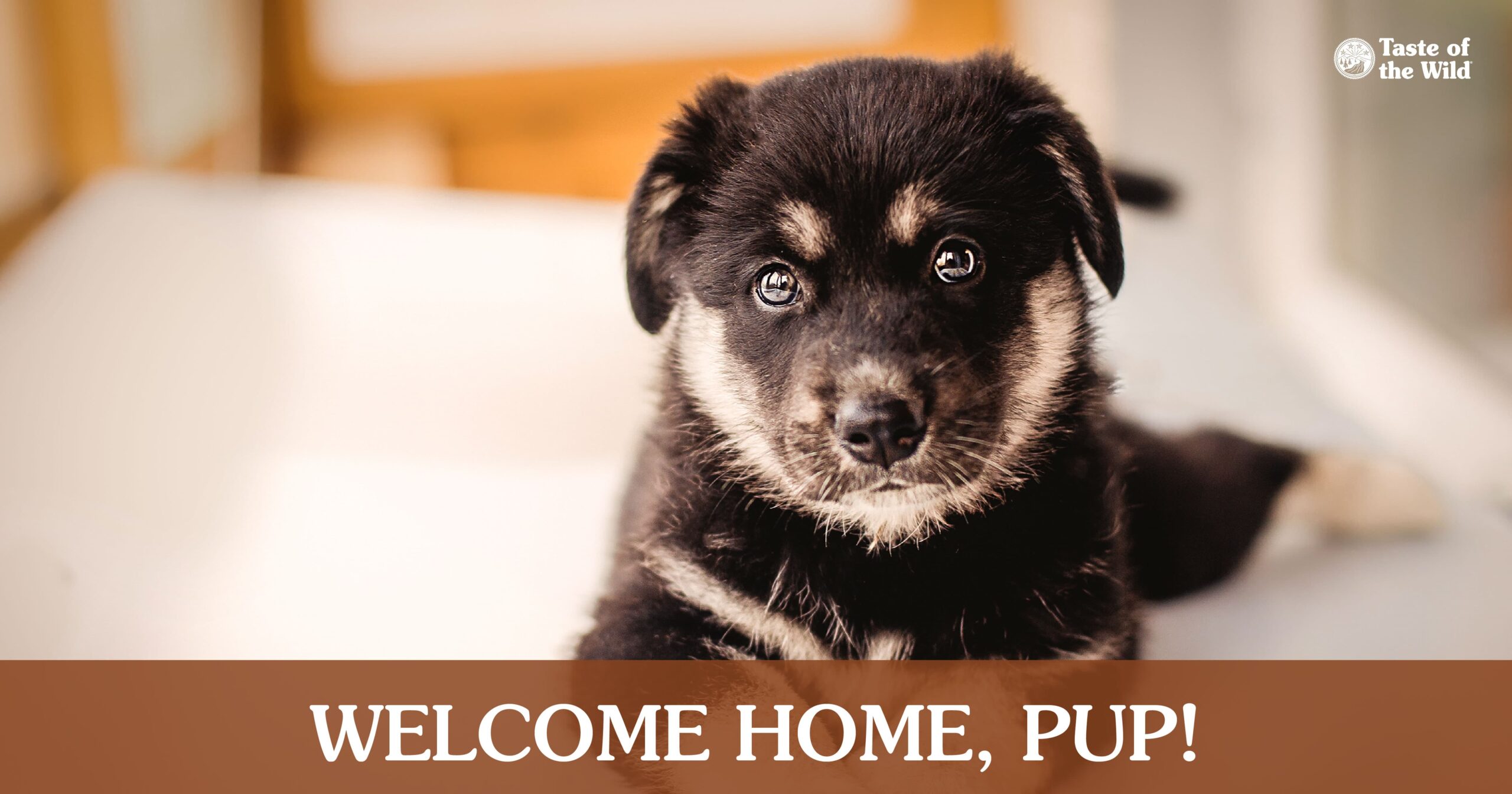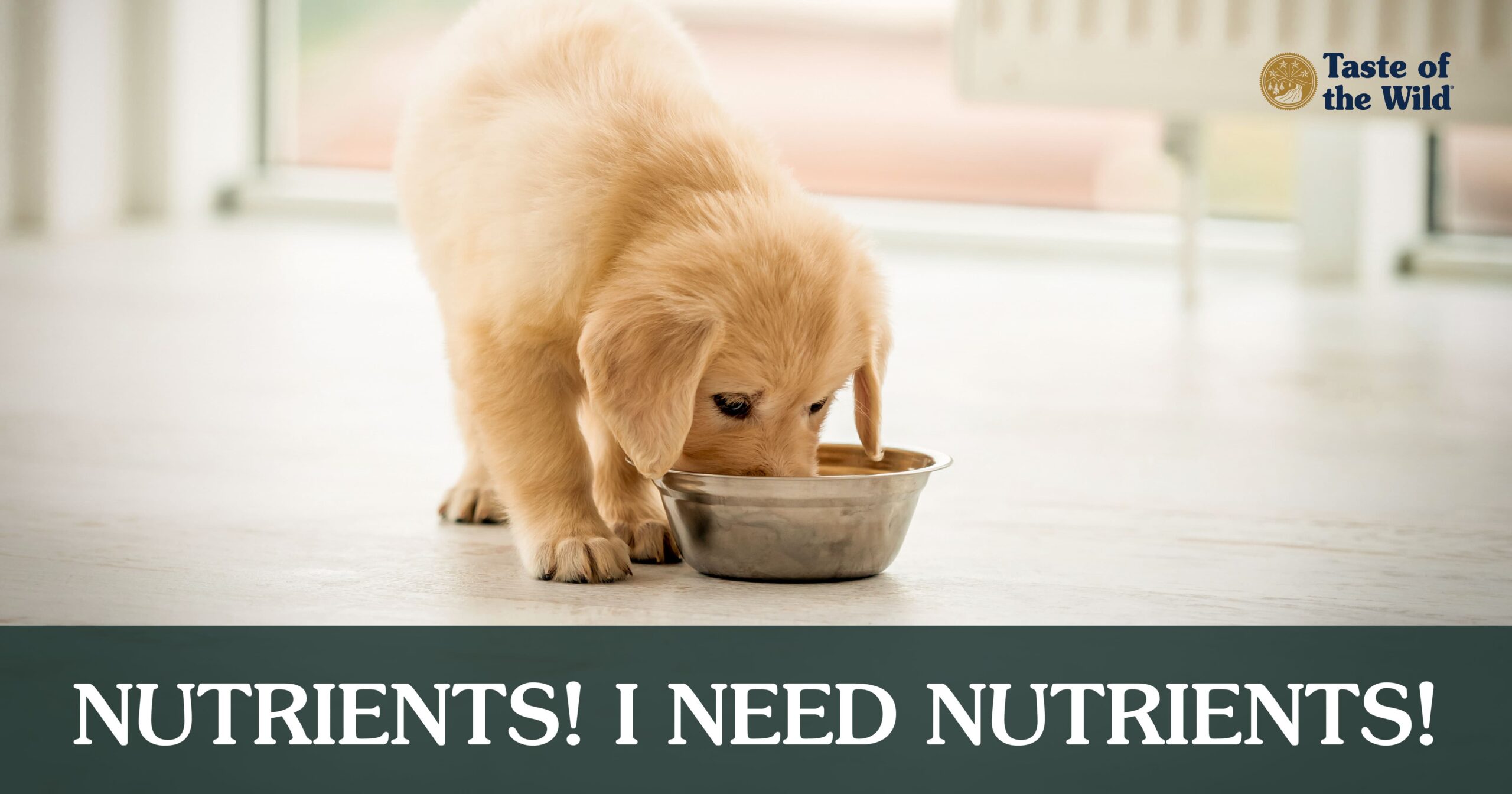Puppy Training 101: How to Stop a Puppy from Biting
Category: Puppies
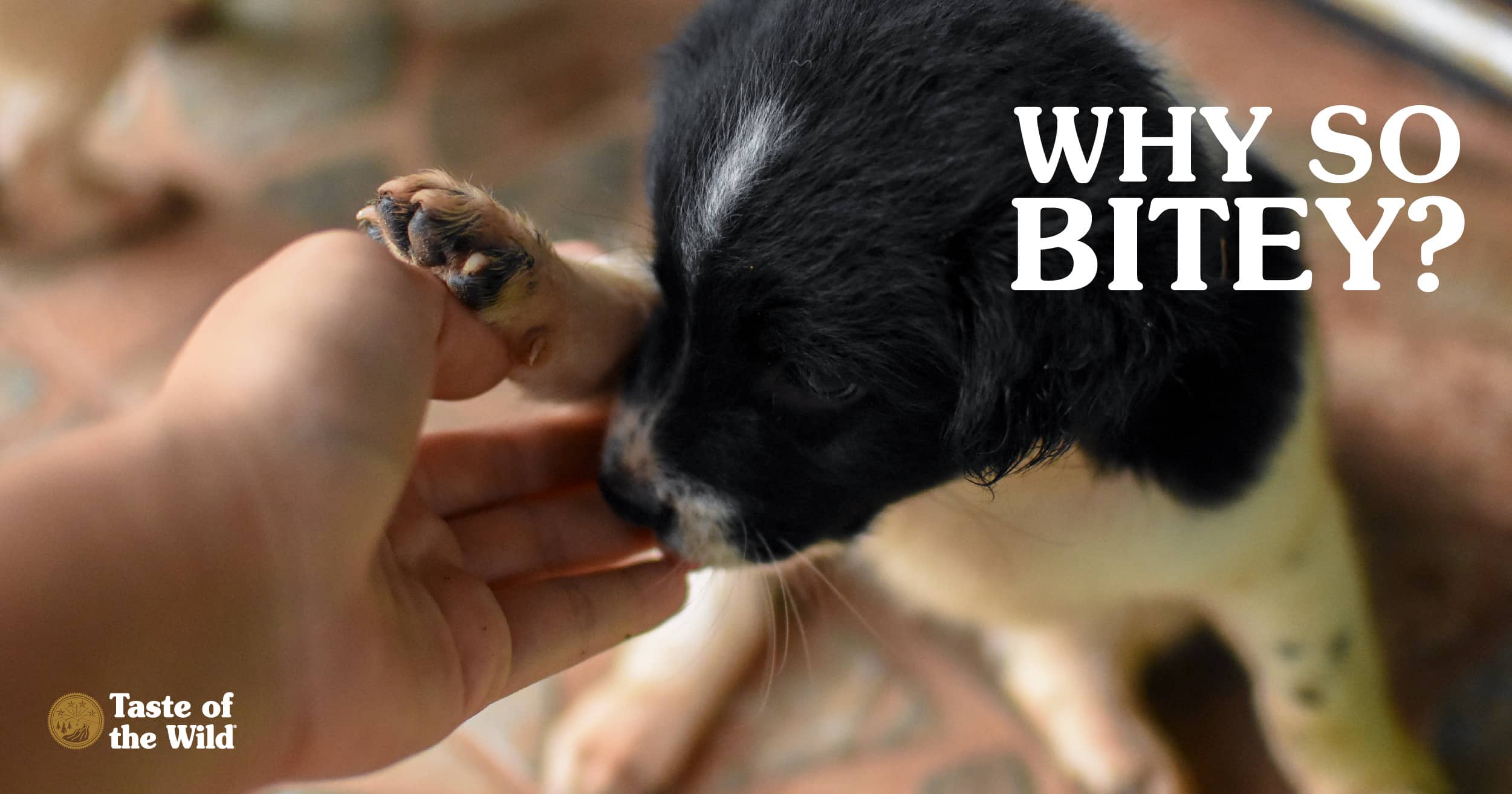
Your puppy is all snuggles, at least until they’re not. Why do the cuddles from young pups so often lead to bites and nips on your fingers, hands or other body parts? If you’re worried your new puppy is biting you out of aggression, fret not. Your pup is probably not biting or nipping to be mean or malicious. In fact, puppy bites are typically a sign that they’re going through a developmental phase. Rarely is biting and nibbling a display of aggression.
Why Does My Dog Nibble On Me?
Puppies are naturally wired to attack moving objects — they’re predators, after all. Therefore, one of the primary reasons for puppy biting is because they’re wanting to release playful energy. Other reasons include teething, saying, “No!” to something or adjusting to the new world around them.
When young puppies are in groups, you’ll commonly see them wrestling, growling and biting as part of their normal playful behavior. If you’re a single-pet household, you may notice your puppy turn to you as their playmate. Puppy bite inhibition stops them from hurting their playmates most of the time. But when the play biting gets too rough for the other puppies, their playmates will let out a yelp or distance themselves from the offender. This social cue is sometimes missed when a puppy is playing with their human.
When Do Puppies Stop Chewing?
Chewing is a common sign of teething in puppies, along with drooling, red or swollen gums, missing teeth and a loss of appetite. The height of teething time is around 3 to 4 months of age when deciduous teeth start falling out and permanent teeth replace them. Chewing due to teething should stop by the time their permanent teeth come in around 6 to 7 months of age.
If your puppy is teething, it’s a good idea to offer puppy-safe chew toys and treats, to help distract them from chewing on inappropriate or dangerous objects (e.g., your shoes, furniture, electrical cords). You should supervise your puppy while they’re chewing on toys, and check the toys regularly for damage.
When Do Puppies Lose Their Baby Teeth?
Puppies have 28 deciduous teeth, and adult dogs have 42 permanent teeth. Puppies typically have their full set of permanent teeth by 6 or 7 months of age. The incisors come in first at around 3 to 5 months, then the canines at 5 to 6 months and then the premolars and molars between 4 and 7 months.
How to Stop Puppy Bites
One way to stop puppy biting is to redirect their attention to a toy and reward their good behavior with treats, praise or other types of positive reinforcement. You can also walk away and ignore them for 30 to 60 seconds after your puppy grabs you to send a message that they are getting too rowdy.
If your puppy is really wound up, put them in a safe space to calm down. Place them in a playpen or a designated space in the house or yard for 5 to 10 minutes. After they’ve calmed down, greet them with love and affection to reinforce good behavior and to not confuse them after they’re being good.
Avoid physical punishment for your puppy’s behavior — e.g., muzzling your pup, holding their mouth shut or pinning them on their backs. Physical punishment can lead to fear and aggression, neither of which you want for your puppy.
Dog owners should also avoid rough play such as wrestling or roughhousing, because it encourages biting behavior. While playing with your pup, keep this in mind to avoid teaching them bad habits.
Help! My Puppy Won’t Stop Biting Me — I’ve Tried Everything!
Most puppies bite; but consider visiting with your veterinarian for advice if your pup:
- Shows signs of aggression
- Consistently breaks your skin when they bite
- Exhibits signs that they’re in pain
- Stiffens up and stares at you before biting
- Gets aggressive around new people (in a non-playful manner)
Your vet can help determine if the biting is an underlying health issue or a behavioral challenge.
When Do Puppies Stop Biting?
Puppies explore and learn new things each day, especially during their developmental phase. Stay consistent with your training, try puppy classes or socialization classes and always reinforce good behavior. Puppies typically phase out of the biting stage between eight and ten months of age.
Note that just by researching how to stop puppy biting, you’ve already shown you have what it takes to be a great pet parent.
The information in this blog has been developed with our veterinarian and is designed to help educate pet parents. If you have questions or concerns about your pet’s health or nutrition, please talk with your veterinarian.
